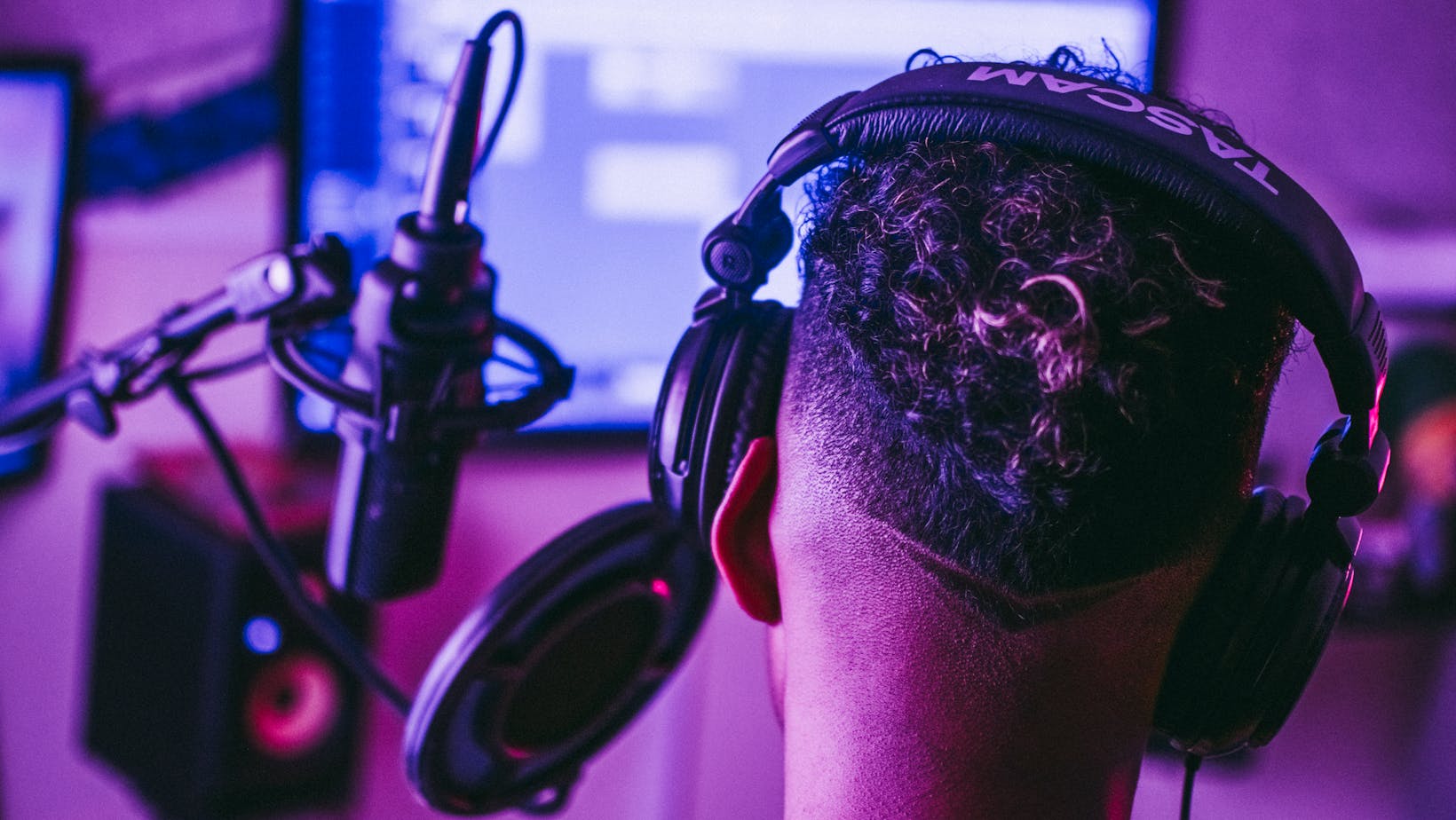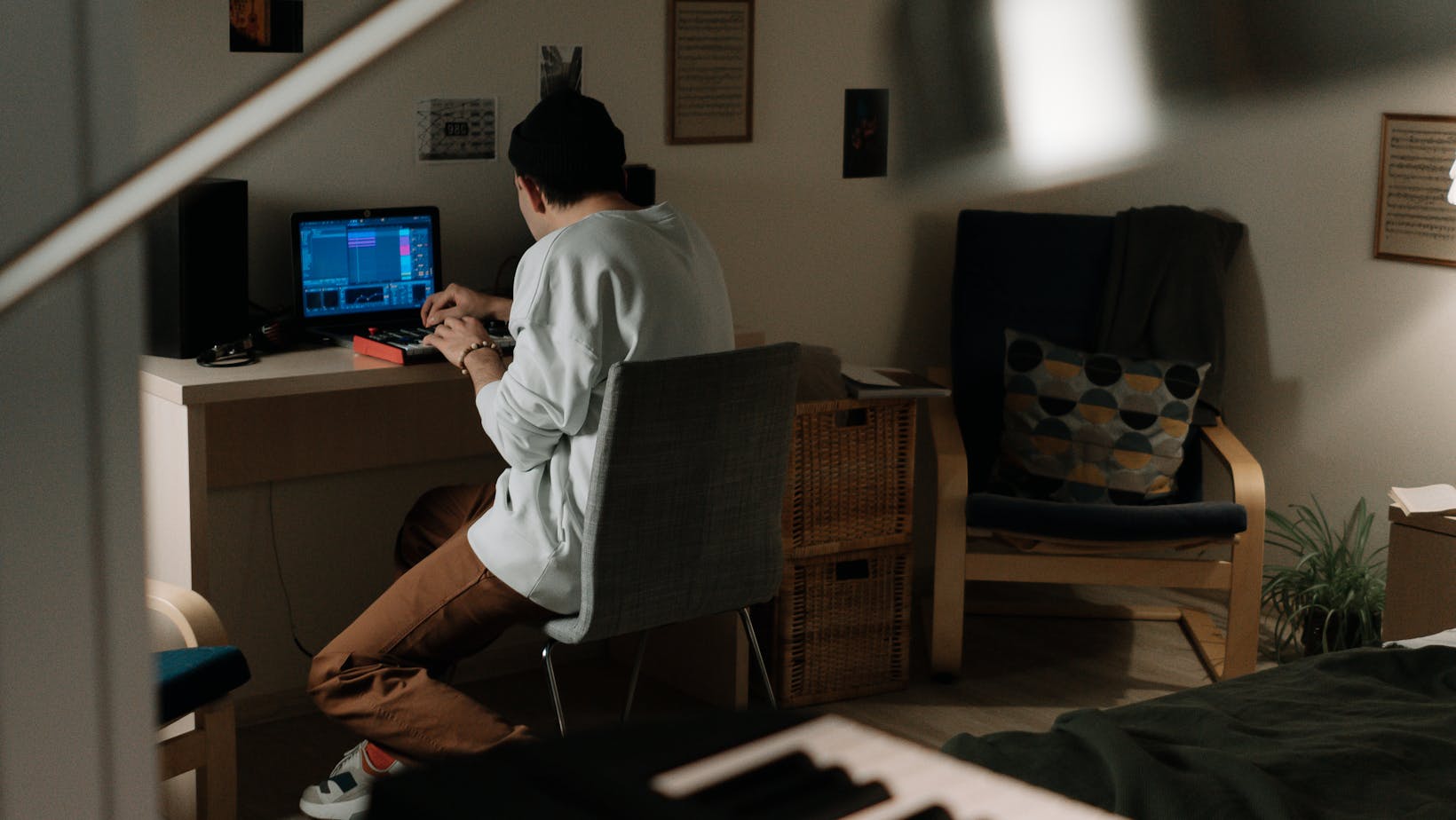Dive into the thrilling world of how to get into music production where creativity meets technology. This article is your gateway to understanding the fundamentals of how to get into music production, a fascinating field that’s constantly evolving with the digital age. Whether you’re an aspiring producer or a music enthusiast wanting to understand the magic behind your favorite tunes, you’re in the right place.
How To Get Into Music Production
What Is Music Production?
 Music Production, a component of the music industry, bridges the gap between the artist’s vision and the final, polished sound released to the public. In essence, it’s the process of creating, recording, and supervising music, involving sequential stages from songwriting and composition to mixing and mastering. Notably, it encapsulates all technical and creative aspects, molding it into a product ready for distribution.
Music Production, a component of the music industry, bridges the gap between the artist’s vision and the final, polished sound released to the public. In essence, it’s the process of creating, recording, and supervising music, involving sequential stages from songwriting and composition to mixing and mastering. Notably, it encapsulates all technical and creative aspects, molding it into a product ready for distribution.
Aspiring music producers need to hone a variety of skills to become successful in the industry. Principally, they should possess a good ear for music – being able to distinguish between pitch, tone, rhythm, and harmony. Also, understanding musical structure and theory underpins the creation and manipulation of sound. Music software expertise, particularly in Digital Audio Workstations (DAWs), constitutes another crucial competency. Cubase, Pro Tools, or Ableton Live exemplify such popular DAWs in the industry.
Setting Up Your Home Studio
Just when you’ve grasped the fundamental music production skills and have an understanding of the musical theory, it’s time to focus on setting up your home studio.
Choosing the Right Equipment
Selecting the right equipment is critical in a home studio setup. Key equipment that every music producer needs include a computer, digital audio workstation (DAW), studio monitor speakers, an audio interface, headphones, microphones, and MIDI keyboard.
 A reliable computer is at the top of the list, as it forms the hub of your home studio. Invest in both power and speed, considering features such as processing power, memory capacity, and storage space.
A reliable computer is at the top of the list, as it forms the hub of your home studio. Invest in both power and speed, considering features such as processing power, memory capacity, and storage space.
Digital Audio Workstations (DAWs) serve as the primary software tool used to record, edit, and produce audio files. Choices, such as Ableton Live, Logic Pro X, or Pro Tools, can facilitate music production effectively.
Studio monitor speakers play a key role in accurately representing the audio output, so it’s vital to select those with the highest quality.
An audio interface functions to process audio data between the computer and external hardware. It converts analog signals into digital forms and vice versa, allowing for smooth recording and playback.
Studio-grade headphones are necessary for critical listening during editing or mixing.
Microphones capture sound sources, so it’s crucial to pick one with a good frequency response.
Lastly, a MIDI keyboard provides towards playing and recording software instruments efficiently.
Software Selection for Beginners
New contenders in music production might find the multitude of software options overwhelming. Start with beginner-friendly software that’s intuitive to navigate yet robust enough to deliver professional results. Three noted DAWs for beginners include Garageband, FL Studio, and Ableton Live.
 Garageband, revered for its user-friendly interface, is a great stepping stone into music production. With built-in lessons for piano and guitar, it’s perfect for newcomers.
Garageband, revered for its user-friendly interface, is a great stepping stone into music production. With built-in lessons for piano and guitar, it’s perfect for newcomers.
FL Studio, reputed for its easy-to-understand workflow, equips beginners with numerous options to experiment and learn. Its step-sequencer and piano roll are notable features that simplify beat making process.
Meanwhile, Ableton Live offers a fluid interface that accommodates both creative composition and efficient arrangement. It plays well with live performances, thanks to its unique session view. Despite its slight learning curve, it’s noted for its efficient workflow, making it a practical choice for beginners eager to progress quickly.
Must Know
So, you’ve got the passion and you’re ready to dive into the world of how to get into music production . You’ve learned that it’s not just about the tech but also about the art. You’ve understood the importance of a well-equipped home studio and the role of a Digital Audio Workstation. You’ve seen how music theory is your secret weapon in crafting cohesive and captivating musical pieces. You’ve discovered resources to boost your knowledge, from books to online platforms and YouTube channels.


